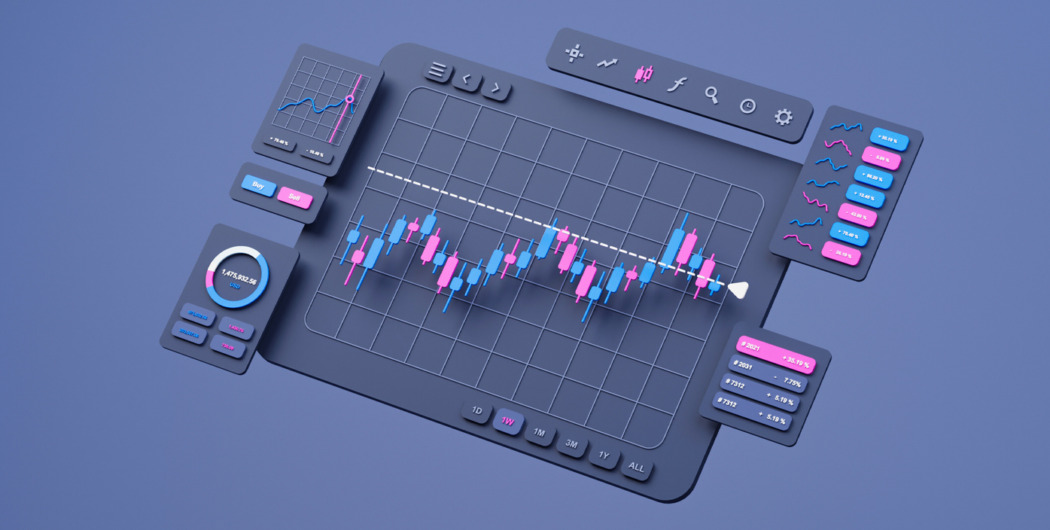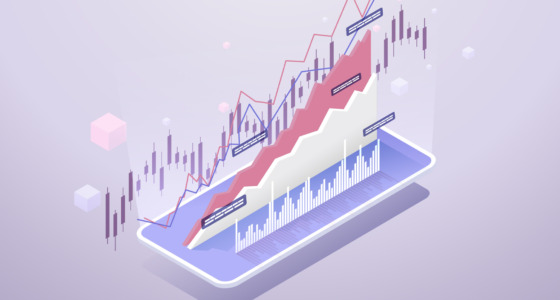

The stock market is a collection of public markets that coexist to allow participants to issue, buy, and sell shares. People can purchase many financial instruments, including shares, derivatives, bonds, and mutual funds. Also, stock markets act as a barometer for the overall economy.
Having established the basic definition, let’s get to the details. Read on to learn all about share markets and how they work.
The world’s first modern stock trading took place in Amsterdam in 1602. Dutch East India Company (Verenigde Oostindische Compagnie, or VOC) held its initial public offering with no minimum or maximum investment. “All the residents of these lands may buy shares in this Company.” An earlier unofficial form of stock trading was held in Antwerp in the late 1400s. Merchants would buy goods, expecting their price to rise, and sell them at a higher price.
Basic terms any traders should know
- Stock: A security that represents equity ownership in a company
- Share: A unit of a stock
- Float: The total number of shares available for public investors
- Market capitalization: The total value of all the company’s shares
- Portfolio: A combination of assets that a person owns
- OTC (Over-the-Counter): A broker-dealer network; the opposite of a centralized exchange
- Bear market: A declining market
- Bull market: A rising market
- Volatility: A measure of fluctuations
- Liquidity: A measure of how quickly you can buy or sell a certain asset
- Stop loss: An order to close a trade when the asset plummets to a certain price level
- Take profit: An order to close a trade when the position reaches a certain price level
How do stock markets work?
The stock market operates like an auction house. Buyers offer the highest amount they’re willing to pay per share, and sellers offer the lowest amount they’re willing to sell it for. For trades to occur, both parties need to agree on the same price.
Prices fluctuate mostly depending on the supply and demand of each stock. Some people believe stock prices reflect a company’s true value at any given time, which is part of the Efficient Market Hypothesis. Others believe that shares trade for more or less than what they are worth all the time and can be either overbought or oversold. This is part of the Intrinsic Value Theory.
Each stock has a unique symbol that is used in combination with the exchange where the company is listed. For example, NASDAQ:AAPL, NYSE: BRK, OTC: TCEHY). Because they’re only 1-5 characters long, it’s easier to use the tickers in interfaces and documentation.
These days, the vast majority of stock market activity takes place electronically. Some exchanges still have a physical presence, either just for showmanship or to simplify large, complicated orders.
Purposes of the stock market
The first purpose of the stock market is to help companies raise capital and expand their business. For example, if a company’s stock trades for $10/share, and there are a million shares in the float, it means the company raised $10 million.
The secondary purpose is to present an opportunity to share in the revenue of publicly-traded companies or to earn income by selling shares at a profit. If a trader buys a share for $10 and sells it for $15, the profitability of the trade is 50%.

Difference between stock markets and stock exchanges
A stock market encompasses OTC trading, electronic trading, and stock exchanges. It is a much broader term, whereas stock exchanges are specific entities that offer trading in certain geographic areas.
A simple way to think about stock markets is to consider them as a network of stock exchanges.
World’s largest stock exchanges
Below are the seven largest stock exchange operators by market capitalization of listed companies.
Source: Statista
- The New York Stock Exchange: 2,400+ companies, average daily trading volume of over $418 billion
- NASDAQ (National Association of Securities Dealers Automated Quotations): 3,500+ companies, average daily trading volume of over $240 billion
- The Shanghai Stock Exchange: 1,500+ companies, average daily trading volume of around ¥462 billion (over $75 billion)
- Euronext N.V. (short for European New Exchange Technology): 1,500+ companies, average daily trading volume of over €10.6 billion (over $11.74 billion)
- Japan Exchange Group: 3,600+ companies, average daily trading volume of over ¥3.38 trillion (over $27 billion)
- The Shenzhen Stock Exchange: 2,600+ companies, average daily trading volume of over ¥377 billion (over $59 billion)
- Hong Kong Exchanges: 2,200+ companies, average daily trading volume of over HK$166.7 billion (over $21 billion)
Stock market players: investment banks, stock brokers, and investors/Traders
Investment banks handle the initial issuing of shares when the company decides to go public. They also set a minimum price per share but ensure all the shares offered are sold at the highest possible price. After the IPO, it’s time for the secondary market — the majority of trading occurs here.
Stockbrokers buy and sell stocks on behalf of their clients, institutional or individual retail investors. Exchanges always operate through middlemen, so it’s not possible to buy shares directly at an exchange. Brokers can also offer advisory services, limited banking services (interest-bearing accounts, electronic deposits, and withdrawals), and the handling of other investments.
Equity research analysts are indirect stock market participants who are employed by investment banks, hedge funds, mutual fund companies, and brokerage firms to research and forecast. Portfolio managers are those who share advice about share market investments for a fee.
Can you buy stocks without a broker?
You don’t need a person executing deals on an exchange’s physical trading floor. This job is carried out by online brokerages remotely, making everything infinitely easier.
If you’d like to buy stock without any middlemen, you can look up DSPPs (Direct Stock Purchase Plans) as part of DRPs (Dividend Reinvestment Plans). These allow traders to purchase shares directly from the company, often on its official website. This is not common, but major companies like Campbell Soup, Walmart, Coca-Cola, Intel, and Starbucks offer direct stock purchases.
How to trade in equity markets: steps involved
Different trading platforms may add or remove a few steps, but the general process of trading stocks is
- Open an online trading account.
- Practice with a demo account with virtual funds.
- Determine your trading approach (day trading, position trading, swing trading, scalping, etc.)
- Set a budget and make a deposit to switch to a live trading account.
- Choose the stock of a company you want to purchase (or it can be a derivative).
- Buy the assets through the trading terminal.
- Monitor your open positions, close them manually or automatically with a Stop Loss or Take Profit, and continue making new trades.
The final piece of advice: make sure to pick the right broker or a trading platform and learn how to use the tools that best align with your trading style and experience.








